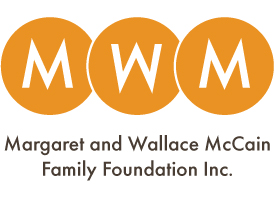
On June 17, 2019 the Honourable Margaret McCain was awarded the annual ECE Award at the Summer Institute in Toronto, hosted by George Brown College and OISE, University of Toronto.
This year marks the 20th anniversary of the release of the first Early Years Study. Early Years Studies 1, 2 and 3, lead by Mrs. McCain and the late Dr. Fraser Mustard, have influenced far- reaching government action including expanded parental leave and full day kindergarten. They have inspired important tools including the Early Development Instrument, the Encyclopaedia for Early Childhood Development, the Science of Early Childhood Development, and the Early Childhood Education Report. The launch of Early Years Study 4: Thriving Kids, Thriving Societies is an apt occasion to honour a Canadian champion for the early years.
Read remarks below;
- Introduction by Patricia Chorney Rubin, Director, School of Early Childhood, George Brown College
- Remarks by the Honourable Margaret McCain
This year’s George Brown College award for significant contribution to early childhood education goes to the Honourable Margaret Norrie McCain.
Twenty years ago, Margaret and Fraser Mustard launched the first Early Years Study at George Brown College’s Casa Loma Child Care Centre. The Study was a game-changer in raising awareness and understanding about early human development and the contribution that early childhood education makes to lifelong learning, behaviour and health.
A few years later Margaret and her family founded the Margaret and Wallace McCain Family Foundation Inc. which is dedicated to building the ECE research, policy and practice across Canada. Early Years Study 2 followed in 2007 and Early Years Study 3 in 2011.
The Early Years Studies have had a profound impact on the curriculum in our postsecondary ECE programs and on the policies that shape how ECE is offered to children and their families. Their reach across Canada is extensive and internationally, the Early Years Studies are one of Canada’s outstanding exports.
The School of Early Childhood at George Brown College has had the privilege of contributing to that work at CHANCES in Prince Edward Island and with the emerging Pre-Primary Program for four year olds in Nova Scotia. Margaret, please know we stand at the ready to support your work anywhere, anytime.
Margaret and the Foundation continue to push forward to make quality ECE available for all children in Canada. [Hold up post card] You all received a card about Early Years Study in your conference bag (folder?) today. Coming soon will be a full website about Early Years Study and in early 2020 Early Years Study 4: Thriving Kids, Thriving Society, will be launched. Sign up at earlyyearsstudy.ca to receive updates.
The School of Early Childhood at George Brown College is proud to have you as our champion and our friend. Thank you, Margaret.
Thank you, Patricia and thank you Jenny. George Brown and the Atkinson Centre are the real champions of this work.
I’ve been fortunate to be the recipient of many honours but as this one is so tied to my life’s passion that I shall hold it close.
It seems the older I get the faster these occasions come. People must think we better catch her while we can.
My early childhood education began at the school of Dr. Fraser Mustard and the first Early Years Study. That was 20 years ago.
The news at the time was dominated by the flight of our top professionals to the United States. Our study countered that the real brain drain takes place when Canada discards its best talent by depriving children of adequate nurturing and stimulation in early childhood.
There have been two Early Years studies since then, all highlighting the evidence for investments in quality early education:
- as an equalizer, giving every child a fair start;
- as a poverty reducer;
- as a contributor to women’s equality;
- and, as an economic driver itself.
But perhaps most importantly, an early childhood program is a child’s first social space outside their family, their integration into the diversity of their community.
Fraser would say: “kittens and puppies raised together grow up to be cats and dogs that get along”. This “Fraserism” has never held more resonance. When we embrace diversity, it becomes our community’s strongest asset. It is a protection against extremism and the brain trust that will find the solutions to climate change and the other challenges that could destroy humanity.
At the core of quality early education is a quality workforce. As we prepare to release Early Years Study 4 early next year I pledge my remaining years to working along side you to achieve a Canada where quality early education is the expectation and not the exception; where ECEs are honoured for their contribution and where there is a common recognition that Canada thrives, when its children thrive.
Thank you.

Margaret McCain & Iram Siraj, Summer Institute 2019
